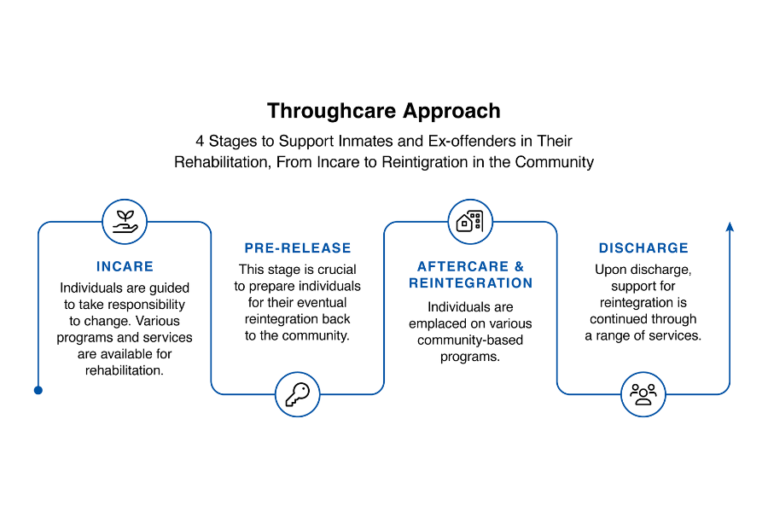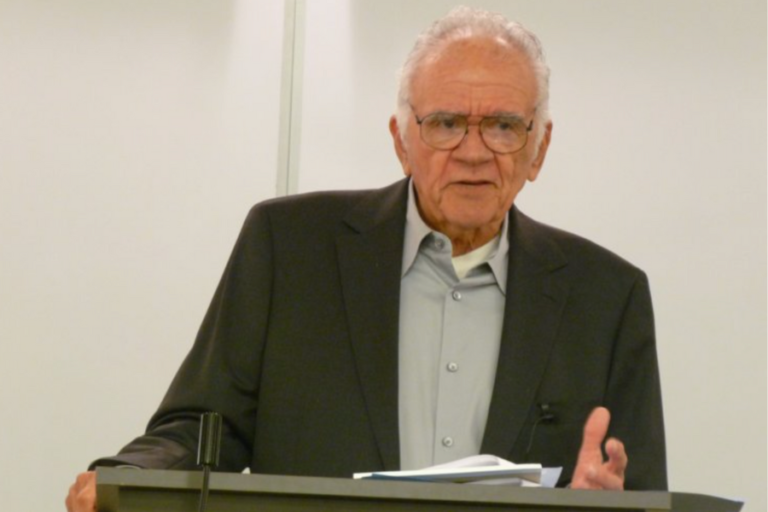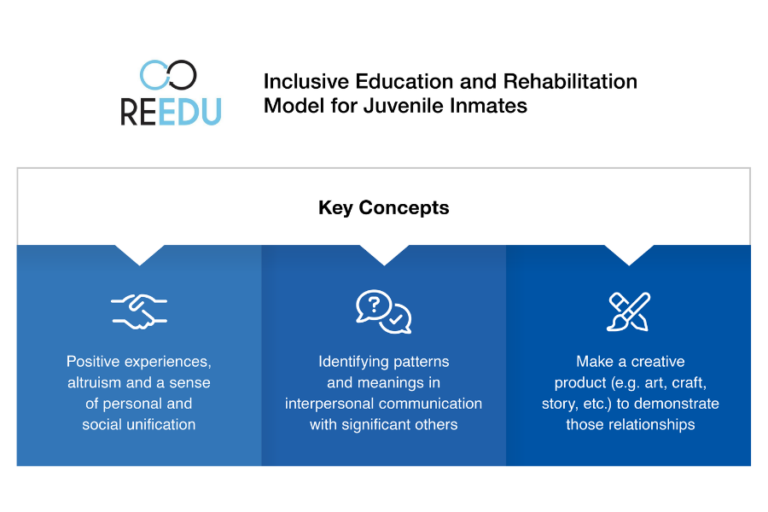We've compiled top highlights from recent research, policy, and practice resources across the world for our latest IACFP International News summary. Our topics for September and October, 2022 include IACFP updates; new research on mental health and trauma-informed care; and resources for practice. 1. IACFP Updates The IACFP will be announcing nominations for President-Elect in October 2022. This will be followed by ballots being sent to IACFP members for the thirty-day voting period. Please respond when you receive your ballot. Frank Porporino, Ph.D., IACFP Past-President, provided the opening keynote address at the 5th World Congress on Probation and Parole in … [Read more...] about IACFP International News, Research, and Resources for Sept/Oct 2022
Forensic Psychiatric Centers Offer Unique Approach to Treating Justice-Involved Individuals with Psychiatric Problems
Over the past five years I have been hearing about the Forensic Psychiatric Centers (FPCs) operating in Belgium. I first heard about FPC Ghent and then later FPC Antwerp. Hearing and reading about these centers, which utilize a unique way of providing both security and treatment for justice-involved individuals with psychiatric problems, is very different from seeing them in action. In June 2022, I was able to visit FPC Ghent and observe not only a unique facility design but also a comprehensive and individualized approach to treatment. In Belgium, internment is the most severe security measure to compel offenders with psychiatric problems to undergo treatment. These individuals have … [Read more...] about Forensic Psychiatric Centers Offer Unique Approach to Treating Justice-Involved Individuals with Psychiatric Problems
The Relationship Between Perceptions of Safety and Workplace Outcomes for Community Corrections Personnel: A Research Summary
A recent article in Criminal Justice and Behavior features research examining the relationship between perceived dangerousness and fear experienced by community corrections personnel and workplace performance. The authors sought to identify predictors of perceived dangerousness and the emotion of fear, as well as the impact such experiences might have on negative outcomes for personnel. In this article, we summarize key takeaways from the study and consider how the findings might apply to practitioners in the field. Research Purpose Prior research conducted with correctional officers who work in institutional settings has shown a connection between their perceptions of danger and … [Read more...] about The Relationship Between Perceptions of Safety and Workplace Outcomes for Community Corrections Personnel: A Research Summary
Community Partnerships and Mobilisation in Corrections: A Focus on Singapore Prison Service
Caroline Lim, Director of Rehabilitation and Reintegration with the Singapore Prison Service (SPS), recently presented a workshop on “Community Partnerships and Mobilisation in Corrections” at the American Correctional Association Annual Conference. Her presentation summarized the transformation journey that SPS has taken over the last twenty years. Her presentation was engaging and shared how comprehensive community partnerships and inclusion of both individual and organizational volunteers can assist in the change process with justice-involved individuals. It is noteworthy that during the twenty-year transformation process, SPS has documented a reduction in the two-year recidivism rate … [Read more...] about Community Partnerships and Mobilisation in Corrections: A Focus on Singapore Prison Service
IACFP International News, Research, and Resources for Aug/Sept 2022
We've compiled top highlights from recent research, policy, and practice resources across the world for our latest IACFP International News summary. Our topics for August and September, 2022 include IACFP updates; new research on criminalization, rehabilitation, probation, and mental health; policy updates for reducing the risk of HIV in prison settings; resources for practice; and upcoming conferences. 1. IACFP Brief IACFP will be presenting the results of the first phase of the “Mental Health in Community Corrections—International Perspectives” project at the 5th World Congress in Ottawa, Canada on 30 September 2022. A call for nominations for IACFP President-elect, to serve a … [Read more...] about IACFP International News, Research, and Resources for Aug/Sept 2022
Correctional Service of Canada: Responding to Mental Illness in Corrections
Previous issues of the IACFP Bulletin included a summary of recent research examining the relationship between solitary confinement of adults and mental illness in corrections and the improvements in policy and treatment that have taken place in the Oregon Department of Corrections. In the article summarizing recent research, readers were invited to answer four questions about their experiences, from the perspective of practitioners. Those questions were:Have you changed your policy on placing incarcerated persons in isolation cells over the last five years?Are you aware of criminal justice systems that have either not allowed mentally ill persons to be placed in isolation cells or that … [Read more...] about Correctional Service of Canada: Responding to Mental Illness in Corrections
Research Summary: Correctional Worker Mental Health
Recent research published in Criminal Justice and Behavior has highlighted the prevalence of mental health disorders among correctional staff, building upon existing research indicating adverse mental health outcomes for this population. Based on data from practitioners in the field, the authors identified areas for changes that could mitigate stress, as well as the need for systemic shifts that would prioritize correctional worker mental health. In this article, we provide a summary of key takeaways that may prove useful to practitioners in the correctional field. Research Purpose and Lit Review The study's authors, hailing from Memorial University of Newfoundland, cited mounting … [Read more...] about Research Summary: Correctional Worker Mental Health
The Passing of Fred Cohen: School of Criminal Justice Founder
Fred Cohen, School of Criminal Justice Founder, Professor Emeritus, and Attorney passed away March 30, 2022, at his home in Tucson, Arizona, just a day short of his 89th birthday.Anyone working in the field of criminal justice should be at least passingly familiar with Professor Cohen’s name and his lasting impact on the field. Professor Cohen was instrumental in helping plan the country’s first Ph.D. program in criminal justice, as well as the core curriculum of SUNY's University at Albany School of Criminal Justice, which started in 1968.Over the years, Professor Cohen became known for his ability to bridge the gap between legal doctrine and the behavioral sciences in keeping with his … [Read more...] about The Passing of Fred Cohen: School of Criminal Justice Founder
IACFP International News, Research, and Resources for May/Jun 2022
We've compiled top highlights from recent research, policy, and practice resources across the world for our latest IACFP International News summary. Our topics for May and June, 2022 include a report on coping with COVID in prisons, new approaches to engaging justice-involved individuals in meaningful activities, the benefits of probation, statistics on youth violence, strategies for addressing trauma in women's prisons, and upcoming conferences. 1. Research "Coping with COVID in Prisons"Over the last 18 months, User Voice and researchers from Queen's University Belfast were funded by the Economic and Social Research Council to conduct one of the biggest systematic studies of … [Read more...] about IACFP International News, Research, and Resources for May/Jun 2022
IACFP Europe REEDU Project Focuses on Rehabilitation and Education for Justice-Involved Juveniles
In 2017, IACFP began exploring how it could more effectively work as a partner with other organizations throughout the world. One of the strategies adopted at that time was to be the founder of an NGO organization in Europe. The result was the establishment of IACFP Europe, which was awarded a Royal Decree as a Belgium public interest foundation in 2019. Over the subsequent 18 months, IACFP Europe pursued partnership opportunities that were aligned with its mission to bridge research to practice and support practitioners who serve justice-involved juveniles and adults in secure facilities and the community. It focuses on research, professional development, and training.During 2020, IACFP … [Read more...] about IACFP Europe REEDU Project Focuses on Rehabilitation and Education for Justice-Involved Juveniles
Essay Summary: Improving Criminal Justice Policy in the Wake of COVID
In a recent essay for Criminology & Public Policy, author Alex R. Piquero explored the overlap of the start of the COVID-19 pandemic and the focus on racial and social justice following the murder of George Floyd in the United States. These two simultaneous events, Piquero suggested, created an environment wherein criminal justice policy could be critically examined and potentially reshaped. In this article, we provide a summary of his essay and key takeaways that may prove useful to practitioners in the correctional field. Impact on Crime and Incarceration One component of research noted by Piquero is the work of criminologists to determine the pandemic's impact on "crime and criminal … [Read more...] about Essay Summary: Improving Criminal Justice Policy in the Wake of COVID
IACFP International News, Research, and Resources for Mar/Apr 2022
We've compiled top highlights from recent news, research, and resources across the world for our latest IACFP International News summary. Our topics for March and April, 2022 include research and practice highlights on Ukraine, penal reform, good governance, and COVID-19, as well as upcoming conferences. 1. Research and Practice SAGE PublicationsIACFP has had a long-standing agreement with SAGE publishing which supports both the publication and dissemination of Criminal Justice and Behavior. It also provides many other benefits to IACFP members in terms of access to published research in 56 other journals in criminal justice and psychology. SAGE is also an organization that “walks … [Read more...] about IACFP International News, Research, and Resources for Mar/Apr 2022













